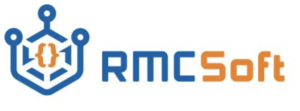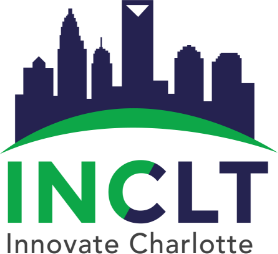The friends and family round — What early-stage startups need to know
A startup at any stage needs money. What varies is how much, and where that money comes from.
We tend to hear a lot about later-stage funding. You may have read, for instance, that Passport recently closed a $65 million Series D round. Less frequent, though, are the early-stage fundraising stories — the friends-and-family rounds.
And yet that can be some of the most important money a company can raise.
The money you receive when you’re starting out allows you to lay a strong foundation for success moving forward. It also comes with significant personal risks: If you squander friends and family money, you can damage important relationships.
“It is definitely something that weighs heavy on me at night,” said Christine Nicodemus, who raised $280,000 from friends and family to get her startup, Ascend, off the ground. “It’s one thing to convince your husband that you’re going to drop a great salary at a great job to go do something. It’s another to ask for commitments and votes of confidence and investments from people who are good friends of yours.”
Another layer of accountability

Nicodemus went full-time with Ascend, a gamified goal-setting platform, back in March after making a personal investment in the company and getting funding from a former professor.
“That gave us the funds to go develop what we were talking about,” said Nicodemus, now part of the INCLT mentorship program.
Soon after that, she realized the company needed to hire additional resources. To do that, she was going to need money for salaries, so she turned to another former professor. Then, a close friend whom she met through her church decided to contribute, too.
Those investments have come varying degrees of accountability to the pressure inherent in taking money from family and friends. Her first investor appreciates updates but is very hands-off. He told Nicodemus he just wanted her to “do something meaningful.” The other two investors are more actively involved and diligent in offering feedback on directional questions and other updates, Nicodemus explained.
The investment agreements have also varied between investors. Nicodemus’ first investor, for instance, did a “SAFE” — a simple agreement for legal equity. The other two investors requested convertible notes.
What stayed consistent throughout her fundraising process was the ask: Her conversations would always begin with a request for feedback, rather than money.
“That was genuine,” she explained. “We absolutely want the feedback, and based on their reactions to it and their interest level, that determines what questions come next on our side.”
No input, please

Drew Bartek, co-founder of Groove Watersports, approached the friends-and-family conversation in a similar way. When the company was raising $140,000 from angels, friends and family, Bartek, who is also part of the INCLT mentorship program, talked to just about everyone he knew. And he opted to be candid from the start.
“I was very up front about the risk involved with family and friends,” said Bartek, whose company makes the Groove Vest, a life jacket with built-in speakers. “And one of the things we made explicit for friends-and-family investors was that we wanted to update them but are not looking to receive ongoing questions. We disclosed everything we knew to them prior to accepting investment. If there’s an area where you can add value, then by all means set up a call with us and let’s discuss it. But we’re not looking for feedback on various things because then you have 12 different people running your business, and you don’t get anything done.”
And you’ve got to get things done to have a shot at future fundraising success.
When friends and family seed success

Rob Cummings, co-founder of DealCloud and managing director and CTO at Falfurrias Capital Partners, lived through every stage of fundraising during his time at DealCloud, a software platform built to serve the private equity world. And it started with a friends-and-family round.
For that, Cummings and his co-founder, Ben Harrison, turned to their colleagues at Falfurrias Capital, a Charlotte-based private equity firm. They understood the challenges inherent in the private equity space. And they signed on to invest as friends, rather than professional investors.
“They invested personal money because they believed in what we were doing,” Cummings said.
A year after that, in 2012, DealCloud raised a seed round — part of which involved collecting more money from those initial friends-and-family investors. Then, the fundraising process stalled. DealCloud did over 100 pitches for its next round, and nothing panned out.
But that didn’t stop the company from growing. Those early rounds of fundraising had allowed DealCloud to build a solution to a known problem, and the company became profitable, fast.
“By mid-2015, we had over $1 million in annual recurring revenue, and that’s when we became really attractive to VCs. That’s when they started calling us,” Cummings recalled.
In 2015, DealCloud raised $5.3 million. In 2017, it raised an additional $4.5 million. And then in August 2018, DealCloud was acquired, and Cummings exited.
“With early stage, you’re really betting on the team. Can you see the passion with the entrepreneurs? Do they really know their market?” Cummings said. “For us, we had experienced the pain personally, and we could verbalize why we built the solution. And that resonated.”
The value of shared experiences
This article is the first in a series about fundraising for companies at various stages of growth. Next month, we’ll dig into what comes after the friends-and-family round, based on the stories of those who have been on both sides: the companies who have raised money and the investors who given money.
 That on-the-ground perspective is a critical part of the work we do within the INCLT mentorship program, which is built on the idea that members of the entrepreneurial ecosystem have a lot to learn from one another. Whether it’s the intricacies of running a business or the strategies involved in raising funds, the experiences of those around us are powerful tools in making the entire community stronger. We are grateful to RMCSoft for helping us share these stories with the community at large.
That on-the-ground perspective is a critical part of the work we do within the INCLT mentorship program, which is built on the idea that members of the entrepreneurial ecosystem have a lot to learn from one another. Whether it’s the intricacies of running a business or the strategies involved in raising funds, the experiences of those around us are powerful tools in making the entire community stronger. We are grateful to RMCSoft for helping us share these stories with the community at large.
Want to do your part to help the ecosystem grow? Consider joining INCLT’s Venture Mentoring Service. We are currently accepting both mentors and founders looking to learn. Click here for more information.
